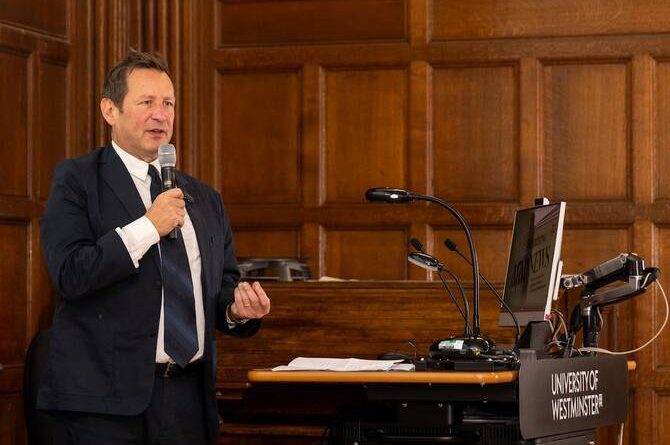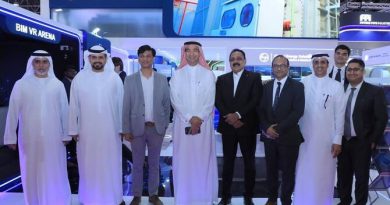Former UK Minister Praises Saudi Arabia’s Cultural Investments Under Vision 2030
London – Former UK Culture Minister Ed Vaizey, now a member of the House of Lords, has commended Saudi Arabia for its growing emphasis on culture and creativity, highlighting the Kingdom’s Vision 2030 reforms as a driving force behind these developments.
His remarks came during an event at the University of Westminster on October 17, which included a special screening of “Rewriting Arab News,” a documentary celebrating the 50th anniversary of the Saudi newspaper and its digital transformation.
Vaizey emphasized the importance of cultural understanding and collaboration between nations, describing culture as “the soul of the country.”
He noted that cultural investment brings both economic and social benefits, praising Saudi Arabia for taking a proactive approach to fostering its creative sector.
“For someone who has been a culture minister in the UK, where it is often a challenge to communicate the value of culture, seeing Saudi Arabia make culture a core part of Vision 2030 is remarkable,” he said.
The event included a panel discussion with Arab News Editor-in-Chief Faisal J. Abbas and University of Westminster Deputy Vice-Chancellor for Global Engagement and Employability Dibyesh Anand.
Vaizey highlighted Saudi Arabia’s $20 billion creative industries sector, projected to contribute 3 percent of GDP and grow to $48 billion by 2030.
He described it as one of the Kingdom’s fastest-growing non-oil sectors and a significant opportunity for international collaboration, particularly with the UK.
Vaizey also discussed his ongoing involvement in projects linking British and Saudi cultural initiatives, including work with the cultural consulting firm BOP, Riyadh-based arts organization Edge of Arabia, and the Saudi-UK Creative Forum.
He stressed the importance of bringing changemakers from both countries together on an equal footing to share ideas and foster innovation.
“Saudi Arabia has the potential to offer valuable lessons to cultural institutions worldwide on innovation and creative development,” he noted.
During the event, Vaizey reflected on his recent visit to the inaugural Cultural Investment Forum in Riyadh, highlighting the Kingdom’s focus on culture as a driver of economic growth.
He said, “By investing in culture, Saudi Arabia is strengthening not only its economy but also the identity and vitality of its society.
The Middle East, and Saudi Arabia in particular, is an economically and culturally dynamic region, and it is inspiring to witness this ambition and confidence.”
University of Westminster Deputy Vice-Chancellor Dibyesh Anand highlighted the role of universities in fostering dialogue and understanding across cultures.
He noted the challenges faced by institutions in navigating global tensions while promoting diversity, open dialogue, and mutual respect. Anand said the university aims to equip students with the skills to navigate complexity while maintaining respect for differing perspectives.
Abbas, a 2009 Westminster graduate, spoke about Saudi Arabia’s Vision 2030 as an outward-looking plan requiring international partnerships.
He emphasized the value of knowledge transfer and collaboration in areas ranging from cultural industries to technology and energy.
Abbas also highlighted Saudi Arabia’s growing diplomatic role in regional and global affairs, citing efforts to mediate conflicts and promote stability as integral to both economic and societal development.
Looking ahead, Abbas shared plans for Arab News’ new AI-powered translation system, developed with regional startup CAMB.AI.
The platform will allow the newspaper to publish content in 50 languages, reaching nearly 80 percent of the global population, demonstrating the Kingdom’s commitment to innovation and international engagement.
The event, attended by academics, students, diplomats, and professionals from the UK and Arab world, underscored the growing cultural, economic, and diplomatic connections between Saudi Arabia and the United Kingdom.


